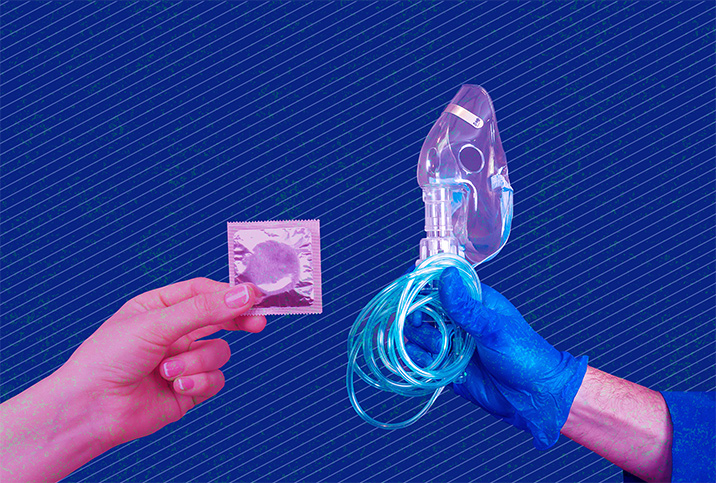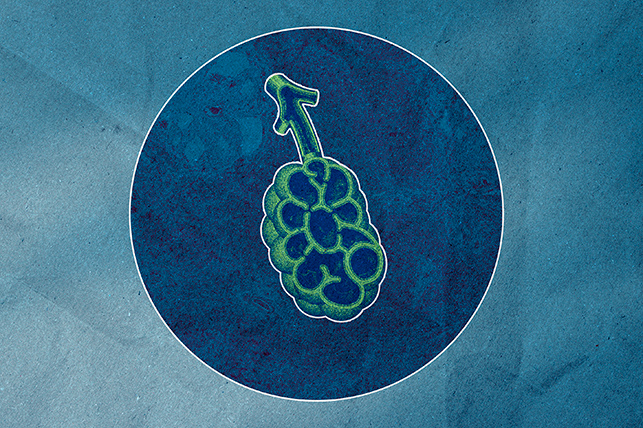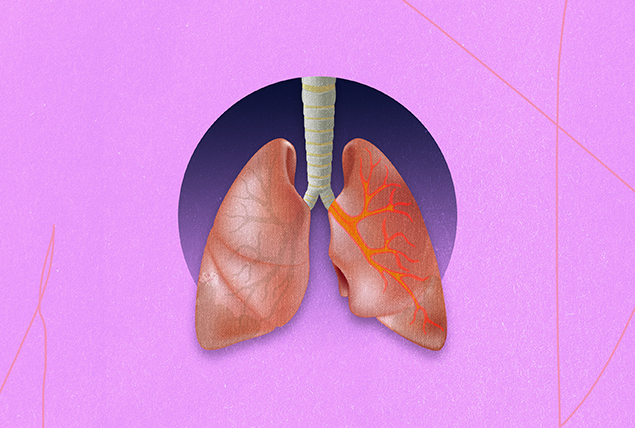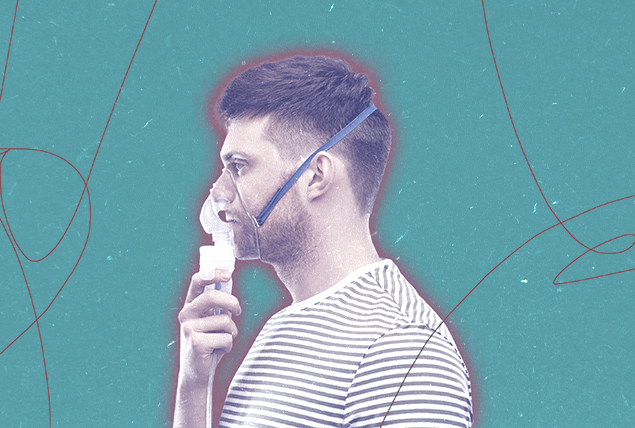A Dating Guide for People With Cystic Fibrosis

The dating world is tricky terrain for all of us, but entering the game with an incurable genetic condition such as cystic fibrosis can create even more obstacles. Cystic fibrosis affects the lungs and other organs. It can cause dehydration, malnutrition, frequent bowel movements, delayed growth and development, and other symptoms.
People with cystic fibrosis also have a shorter life expectancy. Despite the persistent symptoms and decreased life span, the condition does not equal a terminal diagnosis for your social life and relationships.
There is always time for meaningful connection.
What is cystic fibrosis?
"Cystic fibrosis is a chronic and progressive genetic disorder that affects the lungs, pancreas, digestive system and other organs," said Joseph Ambani, M.B.B.S., a London-based physician and medical adviser to GlowBar CBD. "It is caused by gene mutation, where the protein that regulates the flow of salt and fluids becomes defective."
The condition causes changes in the electrolyte transport system in the body, meaning cells absorb too much sodium and water. Approximately 1 in 30 Americans are carriers of the cystic fibrosis gene, and 30,000 people live with cystic fibrosis in the United States, according to the American Lung Association.
Fortunately, the inherited life-threatening disease that affects various organs, particularly the lungs, is rare.
The disease most commonly affects white people, occurring in 1 in 2,500 to 3,500 white newborns compared to 1 in 17,000 African Americans and 1 in 31,000 Asian Americans, according to the Society of Pediatric Psychology.
The average lifespan for people born with cystic fibrosis between 2018 and 2022 is predicted to be 56 years, according to data in the Cystic Fibrosis Patient Registry that the Cystic Fibrosis Foundation shared.
What are the symptoms of cystic fibrosis?
"The common symptoms of cystic fibrosis are persistent cough, recurrent lung infections, dehydration, malnutrition, frequent bowel movements, delayed growth and development, fatigue and muscle cramps," Ambani said.
For you to find a successful connection, prospective partners must understand your condition and how it affects you.
Symptoms start in childhood, as they did for Rima, a development coordinator from Aurora, Colorado.
"I grew up mainly with stomach issues, but then it kind of switched in high school and started becoming more lung issues," Rima said. "I got a port-a-cath in 2005 and a feeding tube in 2007. Then, in 2015, I went on oxygen, and in 2017, I got a double lung transplant."
A lung transplant is not curative for patients, but new lungs will not have or develop cystic fibrosis. However, the rest of the body will still experience symptoms.
How can cystic fibrosis affect dating?
"Cystic fibrosis is a physically, mentally and financially draining condition," Ambani said. "Patients are at a higher risk of infection and constantly take medication or are in hospitals. They experience extreme fatigue and cannot engage in strenuous physical activities, such as going for hikes."
Living with a long-term or incurable chronic illness can be debilitating, and sometimes making room for a romantic life feels overwhelming. Living with chronic illness may erode patients' self-esteem, particularly those who grow up alongside nondisabled peers, which makes dating more intimidating.
"I was obviously self-conscious about having a feeding tube as well as coughing all the time," Rima said. "I usually don't care what people think, though."
The power of not caring what anyone else thinks can help. However, this isn't always possible. Living in a world built for nondisabled people as a chronically ill or disabled person is exhausting; sometimes, shame can bubble up and take control.
"People with chronic health conditions might worry about what people will be thinking or saying about them, which may lead to staying home from events or activities you once enjoyed," said Natalie Fraize, L.M.H.C., L.P.C., a licensed mental health counselor in Buffalo, New York. "This worry and missing out can cause feelings of sadness, helplessness and hopelessness."
How can you jump into the dating scene when you have cystic fibrosis?
"If you can't get the confidence to start dating again, start off by going to a new social event," Fraize said. "Find something you're interested in and go by yourself so that you don't have a crutch. Set a goal of talking to at least one new person and build from there."
Level up slowly; there is no need to push yourself beyond your physical limits to "find the one" in a set time. Your dating experiences may not look like the dating experiences of your peers, and that's OK.
Living with a disability complicates things. Patience is a necessity.
"Always prioritize your health and be mindful of infections," Ambani said. "Find activities you and your partner can enjoy without the risk of feeling fatigued or aggravating the symptoms. You can go for walks, do painting classes or watch movies."
When it comes to sex for people who are disabled or chronically ill, adapting carnal desires to physical capabilities is a little intimidating, but usually, there is no need to be afraid of sex. Yes, it may be more difficult with cystic fibrosis's impact on the body, but a satisfying sex life is possible.
Start with solo sex to identify the best positions for your body. Then, level up to partner sex while prioritizing clear communication. Set aside time before any play to discuss physical limitations with your partner and outline clear boundaries to protect both of you.
"With sex, the more sharing, the better," Fraize said. "Experiment, explore, have fun and be safe by noticing the small signs from your body and communicating about them. Letting your partner know that, for you, pain requires an adjustment and isn't a turn-on is a very important conversation."
How can you better communicate with your partner about your condition?
For you to find a successful connection, prospective partners must understand your condition and how it affects you. Keeping quiet to avoid vulnerability is always tempting but only guarantees isolation. If you cannot be yourself, then there is no relationship.
"First, be open and honest about your condition," Ambani said. "Build trust and create a safe space for your partner to voice their concerns. Educate your partner about the symptoms, the risks and how to manage the condition."
Figure out the best approach for you; there is no one-size-fits-all strategy for sharing a diagnosis, Fraize said.
"Providing accurate information normalizes the conversation and sets the tone for how you are comfortable discussing the topic," Fraize said. "Some people want it to be all facts, while others prefer to use humor. It's your choice. You didn't choose your condition, but you get to choose when and how people discuss it with you."
You get to decide when and how to share information about cystic fibrosis. But you probably shouldn't wait too long.
"If you tell the person about your cystic fibrosis and they're weird about it, or say something insensitive, then they're probably not worth your time or they're not the right person," Rima said.
The bottom line
Living with an incurable condition like cystic fibrosis does not mean you have to compromise your standards. Get involved in activities you enjoy and make it a point to chat with the people you meet. You are worthy of love, respect and pleasure.
Speak to a medical professional or consult your doctor for more information.


















